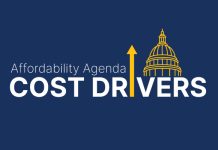In this episode of The Workplace podcast, CalChamber Executive Vice President and General Counsel Erika Frank, CalChamber Policy Advocate Ashley Hoffman, and Legislative Advocate Chris Micheli of Aprea & Micheli discuss what federal employment law changes employers can expect to occur this year.
New President, New Agenda
This year kicked off the start of President Joseph Biden’s administration, and as can be expected whenever a new president is sworn in, there has been a changing of the guard in many government agencies, Frank tells podcast listeners. New leadership is being put into place, with new agendas that the new president wants to pursue. As always, labor and employment is a hot topic.
Former President Donald Trump’s administration did quite a lot in the labor and employment area, and as is expected whenever a president from the opposing political party comes into office, President Biden jumped right into things. Hours after being sworn in, he appointed new leadership to the National Labor Relations Board (NLRB), elevating one of the Democratic board members to chair, Micheli explains. President Biden also has revoked a number of President Trump’s executive orders and placed holds on certain regulatory actions.
Frank recalls that during former President Barack Obama’s administration, the NLRB was very active in regulating the use of social media by employees, giving ample latitude on what constitutes workplace speech. Are there any particular issues the agency is looking at this year, Frank asks Hoffman?
Targeted Issues
There is speculation that President Biden will be making it easier for every American to unionize, and to be able to organize in small groups, Hoffman answers. There also is speculation that the NLRB will be putting forth orders that allow workers to use employer resources for communications.
Micheli adds that one of President Trump’s goals while in office was to overrule a lot of the NLRB decisions made under the Obama administration. So, Micheli says, it can be expected that the Biden administration will seek to overrule the actions taken by the NLRB under President Trump.
One of the big areas that will be targeted is joint employment. Micheli expects the new administration to make it easier to make joint employers liable for violations. For example, he says, in franchise agreements, the parent company could be held liable for labor and employment violations as they are designated a joint employer with the franchisee.
Frank points out that we are already beginning to see examples of what Micheli laid out.
In December, the U.S. Department of Labor (DOL) issued a host of opinion letters and one had to do with tip pooling and how to allocate tips—whether the front house or back house staff should receive them.
President Biden retracted one of those opinion letters, and the DOL issued another advisory saying that its December letter was premature, Frank explains.
Two areas the DOL is likely to review, Micheli says, are the persuader rule, and union financial disclosure rules. He expects that President Biden, who has often called himself a union man, will make it easier for unions to report financial items.
Similar to what is on the horizon in California, Hoffman expects the federal government to address COVID-19 supplemental paid sick leave, and seek mandates related to independent contractor laws.
California also is expected to take a number of actions on the labor and employment front. Follow CalChamber.com for the next Workplace podcast, which will break down what labor laws employers can expect from state lawmakers this year.

